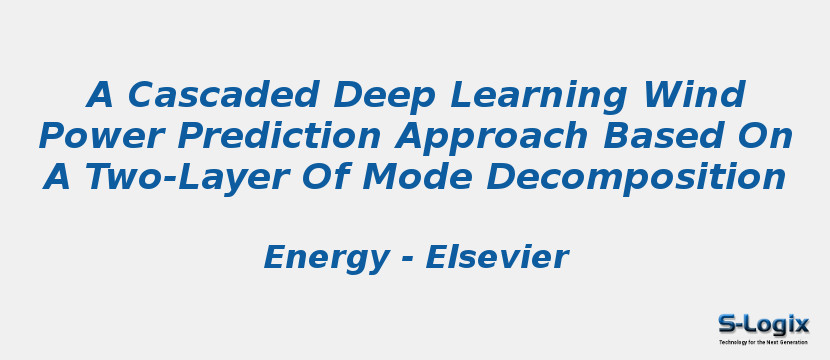Research Area: Machine Learning
Wind power forecasting is crucial for the economic dispatch and operation of power system. In this study, a novel hybrid wind power prediction approach is proposed by applying a cascaded deep learning model to extract the implicit meteorological and temporal characteristics of each subseries generated by a two-layer of mode decomposition method. In the proposed model, the empirical mode decomposition is employed to decompose the original time series into a set of intrinsic mode functions (IMFs) and the variational mode decomposition is applied to further decompose the IMF1 sub-layers into several sub-series because of the irregular feature of IMF1. To make use of the coupling relationship between wind power sub-layer, wind speed sub-layer and wind direction, convolutional neural network is used to extract the implicit features of these relationship and then long short-term memory utilizes these features as inputs and further extract the temporal correlation hidden features in each time sub-series. The eventual predicted results are obtained by superimposing the predicted values of all subsequences. The experimental results illustrate that: (a) The prediction performance is obviously improved when the proposed two-layer of decomposition is considered. (b) To achieve better prediction accuracy, it is proven to be an effective way to apply convolutional neural network and long short-term memory to extract the implicit meteorological relationship and the temporal correlation characteristic hidden in each decomposed time sub-series, respectively. (c) The proposed hybrid model outperforms other hybrid models involved in this study and shows a promising prospect in the short-term wind power prediction.
Keywords:
Author(s) Name: Hao Yin,Zuhong Ou,Shengquan Huang,Anbo Meng
Journal name: Energy
Conferrence name:
Publisher name: Elsevier
DOI: 10.1016/j.energy.2019.116316
Volume Information: Volume 189, 15 December 2019, 116316
